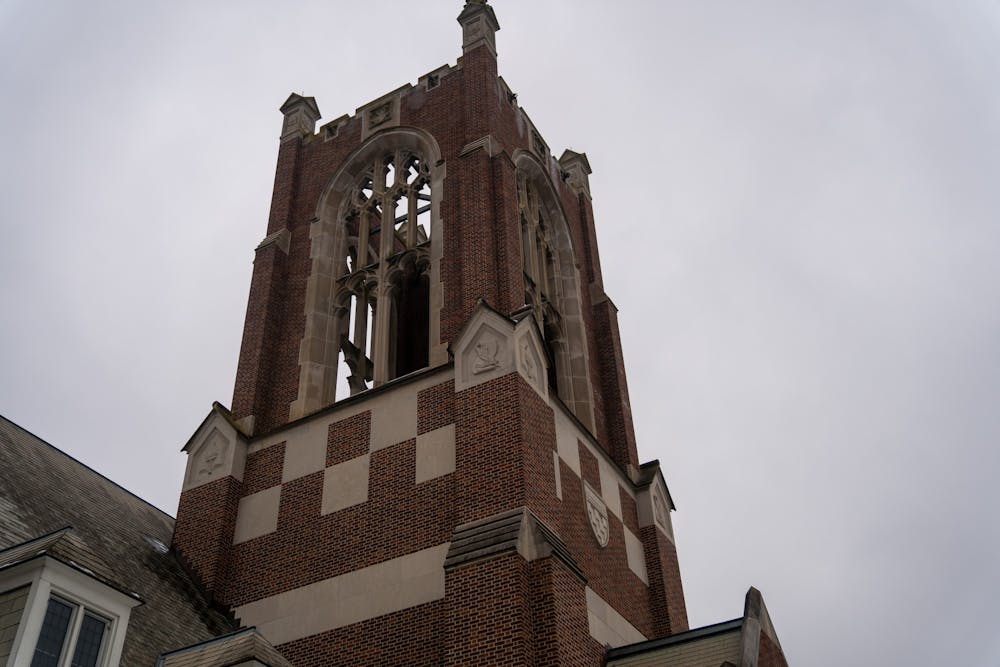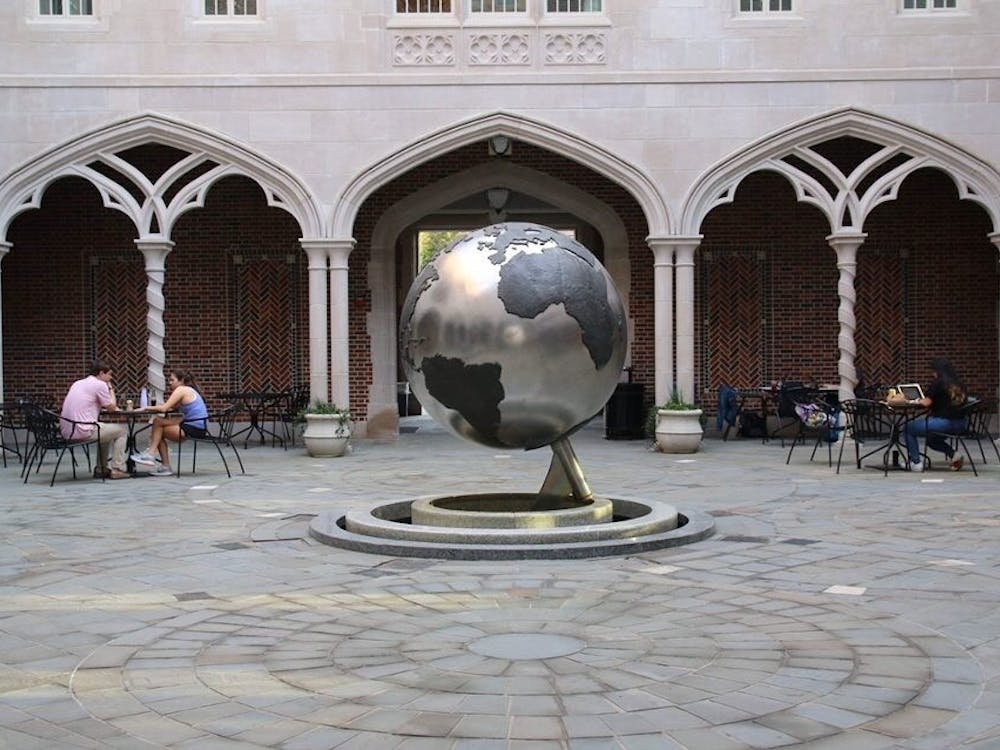Award-winning journalist and filmmaker Jason Motlagh spoke with University of Richmond students and community members about his time pursuing underreported stories in Afghanistan, Haiti and Myanmar on April 15.
The lecture hall quickly filled with listeners as journalism professor and department chair Shahan Mufti directed the discussion on Motlagh’s reporting in a talk titled “Human Rights, Human Wrongs: Stories from the Frontlines." The two speakers have known each other for around 20 years, prompting his visit from the Pulitzer Center.
Motlagh, who recently won the George Polk Award for his reporting in Haiti, talked about the process of crafting documentaries for large media companies, including National Geographic and Al Jazeera, as a freelancer while working on personal projects that encapsulate the unforeseen effects of war.
“I just trust my instincts to go and get a feel for the place and follow my curiosity,” Motlagh said.
The luxury of time to be able to follow his instincts is the reason he continued as a freelancer.
“I’m not ever going to be rich doing this job, but I feel like it's meaningful work,” he said.
Throughout his career, Motlagh has produced a variety of films showcasing the complexities and intersections between conflict and culture. Throughout the discussion, Motlagh showed clips of his projects while providing the audience with candid retellings of pivotal production moments.
One clip was an episode of Vice News’ “The Source” that highlights the political crisis in Haiti, in which he interviews rebel gang members and Jimmy “Barbecue” Chérizier, a former police officer who leads the Revolutionary Forces of the G9 Family and Allies.
He also played clips from “Riders On The Storm,” a feature film that follows the escalation of violence in Afghanistan as the United States pulled its troops out through the lens of a rising athlete in a traditional “goat-grabbing” sport called Buzkashi.
Mufti described Motlagh’s reporting to be character-driven, displaying large-scale conflicts through the lens of bystanders and civilians. Motlagh explained that his reporting style came out as a response to the oversaturation of war coverage through the military and its infrastructure.
“I became increasingly disillusioned with working that way,” Motlagh said.
As he became discontented with coverage concerning the Afghanistan War, he shifted his focus toward the impact of the airstrikes and violence on local communities.
Enjoy what you're reading?
Signup for our newsletter
“I was able to go far deeper into the country, build relationships and show more of what was happening on the ground,” Motlagh said.
After the hour-long lecture, the event opened up to a Q&A as Motlagh responded to questions on the dangers of reporting live conflict, the role of social media in populist movements and the role of female journalists, among others.
First-year Alayna Howard said she found the talk insightful as it provided an alternative, in-depth insight into these conflicts.
“[The talk] really opens your eyes to the realities of the world,” she said.
While she does not intend to pursue a career in journalism, Howard believes that hearing about Motlagh’s experiences will be especially beneficial for aspiring journalists.
“He's very educated and knows so much about everything he's doing,” Howard said.
The event was hosted by UR’s journalism department in collaboration with the Pulitzer Center with support from the Office of International Education and the School of Arts and Sciences.
Mikaela Schmitt, a program coordinator for the Campus Consortium and Outreach team at the Pulitzer Center, explained the process of inviting Motlagh to UR.
"Each semester, we work to bring a journalist to speak on campus, and that's really informed by the professors and what their interests are,” she said.
With Motlagh and Mufti's good relationship alongside general campus interest in conflict reporting, Schmitt said Motlagh was the best option after the organization worked with him last year.
“We work with our most recent projects and try to identify some best options of who can come and speak, that's how we landed on Jason,” she said.
Contact multimedia editor Gareth Woo at gareth.woo@richmond.edu.
Support independent student media
You can make a tax-deductible donation by clicking the button below, which takes you to our secure PayPal account. The page is set up to receive contributions in whatever amount you designate. We look forward to using the money we raise to further our mission of providing honest and accurate information to students, faculty, staff, alumni and others in the general public.
Donate Now


